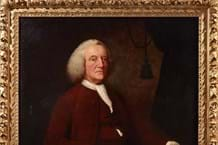Dealers in New York and London will now be waiting to see just how far US recognition of foreign laws on the excavation, export and ownership of cultural property could affect their business.
It is well known that the nature of antiquities means that cast-iron provenance is not always possible, but the ruling in the US means that anyone wishing to deal in Egyptian antiquities in the US will have to be able to show cast-iron provenances going back to before 1983 for any piece, regardless of its cultural or economic value.
This is because that was the year the Egyptian authorities made all antiquities discovered in the country after that date state property and not available for sale overseas.
The British government have indicated that following the UK accession to the UNIDROIT rules on stolen art last year, parliament would pass legislation recognising foreign laws as well, which means the British trade could face similar difficulties.
But British Art Market Federation chairman Anthony Browne cautioned against panic, pointing out that crimes linked to the regulations were mens rea offences, in which the prosecution would have to prove that the defendant knowingly broke the law. In other words, dealers unwittingly falling foul of foreign legislation could not be held to account.
It is likely to mean, however, that collectors spending significant sums on purchasing antiquities will demand greater evidence of due diligence on the part of dealers in investigating provenance. This was a clear objective of both the Culture Select Committee and the Government-appointed Panel of Experts, which included both Mr Browne and Antiquities Dealers’ Association chairman James Ede, in advising Arts Minister Alan Howarth on how Britain should tackle stolen art. One of the results of this advice was the UK’s adopting of the UNIDROIT convention.
Schultz found guilty in antiquities case
The conviction of New York antiquities dealer Frederick Schultz on charges of conspiracy and trading in stolen and smuggled artefacts has sent shockwaves through the trade.




